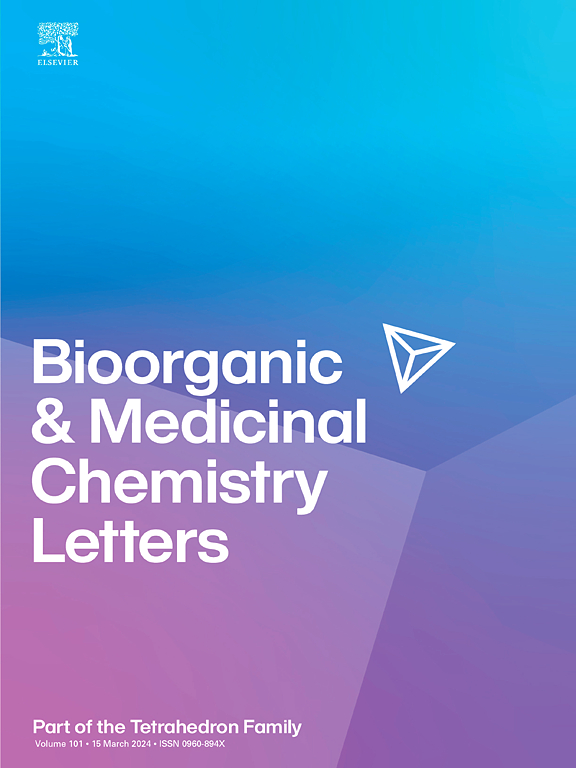1,2,3-Triazole‑gold(I)-triethylphosphine derivatives of nutrients as new antimicrobials against antibiotic resistant Gram-positive pathogens
IF 2.5
4区 医学
Q3 CHEMISTRY, MEDICINAL
引用次数: 0
Abstract
The ongoing rise of bacterial resistance against antibiotics is an incentive to develop radically new antibacterial molecules. Innovative organo-gold(I) antibacterial compounds were synthesized by click chemistry with triethylphosphine‑gold(I) azides and alkyne-functionalized metabolites like amino acids, nicotinic acid and biotin. The resulting organo‑gold(I) compounds exhibited remarkable activities against a panel of Gram-positive pathogens (Staphyloccocus sp., Enterococcus sp. and Clostridium difficile) but failed to inhibit the growth of Gram-negative bacilli (e.g., Escherichia coli) under the conditions used (8 μg. mL−1 maximum).
1,2,3-三唑金(I)-三乙基膦营养物衍生物作为抗革兰氏阳性耐药病原体的新抗生素。
细菌对抗生素耐药性的持续上升是开发全新抗菌分子的动力。以三乙基膦-金(I)叠氮化物和氨基酸、烟酸、生物素等炔烃功能化代谢物为原料,通过点击化学合成了新型有机金(I)抗菌化合物。所得有机金(I)化合物对革兰氏阳性病原菌(葡萄球菌、肠球菌和艰难梭菌)具有显著的抑制作用,但在使用的条件下(8 μg L-1最大值)对革兰氏阴性杆菌(如大肠杆菌)的生长没有抑制作用。
本文章由计算机程序翻译,如有差异,请以英文原文为准。
求助全文
约1分钟内获得全文
求助全文
来源期刊
CiteScore
5.70
自引率
3.70%
发文量
463
审稿时长
27 days
期刊介绍:
Bioorganic & Medicinal Chemistry Letters presents preliminary experimental or theoretical research results of outstanding significance and timeliness on all aspects of science at the interface of chemistry and biology and on major advances in drug design and development. The journal publishes articles in the form of communications reporting experimental or theoretical results of special interest, and strives to provide maximum dissemination to a large, international audience.

 求助内容:
求助内容: 应助结果提醒方式:
应助结果提醒方式:


